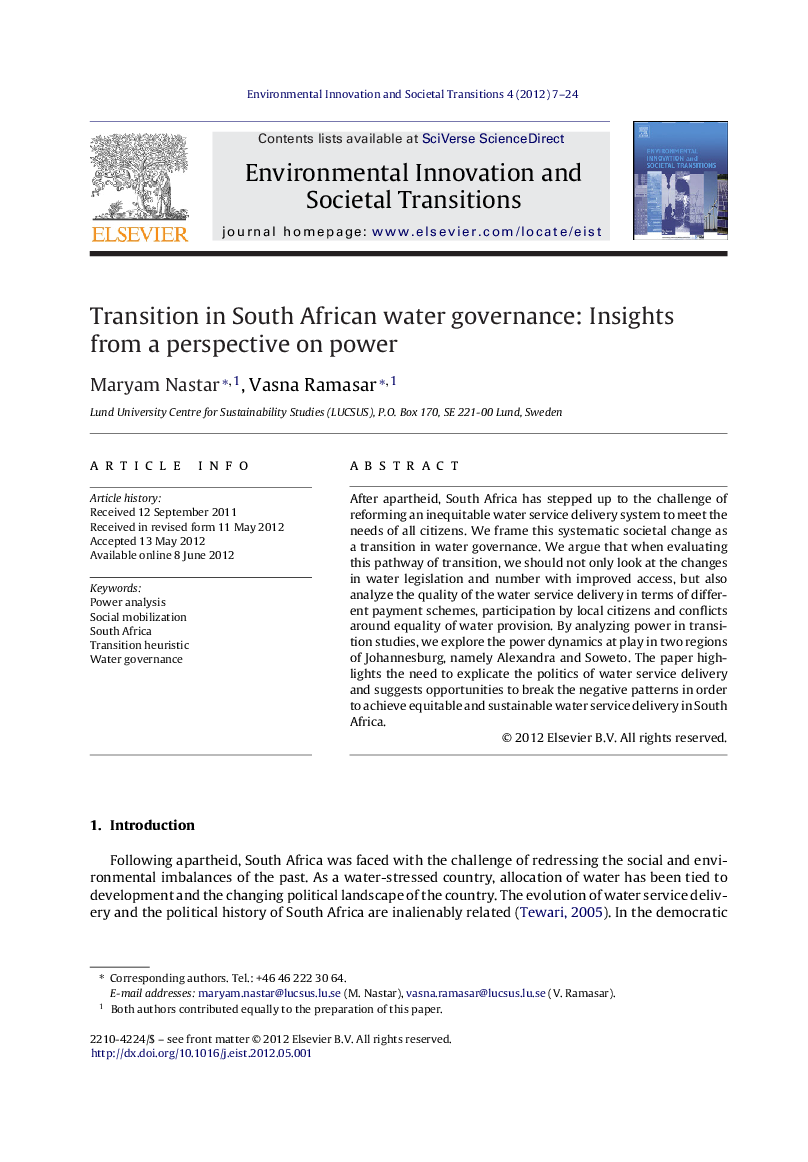| کد مقاله | کد نشریه | سال انتشار | مقاله انگلیسی | نسخه تمام متن |
|---|---|---|---|---|
| 108292 | 161895 | 2012 | 18 صفحه PDF | دانلود رایگان |
After apartheid, South Africa has stepped up to the challenge of reforming an inequitable water service delivery system to meet the needs of all citizens. We frame this systematic societal change as a transition in water governance. We argue that when evaluating this pathway of transition, we should not only look at the changes in water legislation and number with improved access, but also analyze the quality of the water service delivery in terms of different payment schemes, participation by local citizens and conflicts around equality of water provision. By analyzing power in transition studies, we explore the power dynamics at play in two regions of Johannesburg, namely Alexandra and Soweto. The paper highlights the need to explicate the politics of water service delivery and suggests opportunities to break the negative patterns in order to achieve equitable and sustainable water service delivery in South Africa.
► The change in water service delivery in South Africa can be framed as a transition.
► Tracing the pathway of transition is enhanced through an analysis of power.
► Equality in the system can be an indicator of acceleration or lock-in.
► The current water regime has absorbed niche experiments and maintained inequalities.
► The role of frontrunners is essential to break lock-in situations.
Journal: Environmental Innovation and Societal Transitions - Volume 4, September 2012, Pages 7–24
